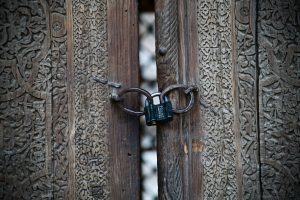On December 10, International Human Rights Day, a group of human rights defenders, activists, researchers, artists and filmmakers gathered in Tashkent’s 139 Documentary Center. They were there for the premier of a documentary film about former political prisoners who were released from the notorious Jaslyk prison, a facility synonymous with torture, and where they had been condemned to sentences of up to 24 years after falling foul of the Karimov regime.
The release of the prisoners in 2017, and the closure of Jaslyk in 2019 symbolized a new era for Uzbekistan as Shavkat Mirziyoyev ascended to power following the late dictator’s death in 2016. The release, which came about largely because of international pressure, was an effort by the new government to improve the country’s international reputation.
But the shadows of the past continue to linger. Many of the people who presided over that era of repression remain in government today – the very people who committed atrocities against prisoners in Jaslyk. While those imprisoned have since been released, they have yet to be rehabilitated, and democratic freedoms such as freedom of thought, expression and assembly remain suppressed.
Meanwhile, journalists, scholars and activists continue to be persecuted and surveilled. Recently, after a number of media agencies reported on crippling energy shortages in the country, the Agency for Information and Mass Communications (AIMC) objected to the “negativity” of some of the reporting, threatening the media agencies responsible with “serious legal consequences” if they do not rein in their coverage. The internet remains tightly controlled with politically motivated filtering and blocking of critical content. Parliament remains merely a simulacrum of debate rather than a voice of the people or genuine forum for policy discussion.
Despite this, some scholars continue to argue that serious change is taking place.
In a recent interview, Farkhod Tolipov, political scientist, director of the Uzbek non-government research institution Caravan of Knowledge, wrote that “[Mirziyoyev] will speed up political reforms and work toward consolidation of a more open and pluralist political system” if he is elected in 2021. But it is difficult to see how. In an authoritarian country like Uzbekistan, with no opposition, and widespread persecution of critics, changes to basic human rights and freedoms remain a distant hope.
Far from a reform-oriented government, Mirziyoyev’s agenda has so far appeared populist in nature. While promoting rhetoric of a “new Uzbekistan” through top-down mega urban redevelopment projects like the billion-dollar “Tashkent City” to attract foreign investment, the government largely neglected the interests and concerns of the local population.
Plans like the one above are part of the government’s strategy to improve the country’s investment and business climate, with the aim of raising the country to 20th place from its current low of 69 on the World Bank’s Ease of Doing Business ranking. But far from cutting through the red tape and inefficiencies, Mirziyoyev has continued down the well-trodden path of kleptocracy.
We have witnessed massive, illegal, forced land grabs by government-backed corporations, leaving people and businesses without homes, livelihoods and destruction of cultural heritage. Half of the protests in the country since 2018 have been related to property and land according to Oxus Society’s Central Asia Protest Tracker. While the elites continue to line their pockets, 20 percent of the population live on less than $1.90 a day.
And like Karimov, Mirziyoyev continues to block the emergence of NGOs, and filling the civil-society vacuum with government-sponsored NGOs (GONGOs) that parrot official narratives. Despite this, the successful registration of one or two independent NGOs this March should be noted, even if it only happened after multiple failed attempts thanks to international pressure. No new political parties have been able to register in the country. There is still no genuine opposition, and this does not look like it will change soon. According to the law on presidential elections, it is practically impossible to form a political party. Anyone interested in doing so needs to collect signatures from 1 percent of the population in eight of the country’s administrative-territorial units to do so.
Despite these restrictions on freedom of speech and assembly, the country is able to reposition itself in world ratings and forums. In December, the United States government removed Uzbekistan from the special watch list of “countries of particular concern” for governments that engage or tolerate “severe violations of religious freedom”, with Secretary of State Mike Pompeo stating that Uzbekistan had made “concrete progress” in the field of religious freedom and human rights. While Uzbekistan’s government has relaxed repression, stopping raids on unregistered religious groups, measures to actively promote religious freedom are lacking. No new religious group has managed to register in the country due to the restrictive legal environment.
In another PR coup, Uzbekistan became a member of the UN Human Rights Council and was applauded by world leaders and the international press. Reputation laundering is a serious business, and Mirziyoyev is using it to burnish his government in Washington and London without having altered the very nature of its authoritarian governance.
We need to avoid treating the populist regime of Mirziyoyev as if it is implementing genuine reforms for the benefit of the people. Genuine reform takes place not through quashing free thinkers and critics but in encouraging and even embracing them. Pluralism lies in diverse ideas and opinions – not in opposition to them.
Dilmira Matyakubowa, a researcher and co-director at UzInvestigations and research fellow at the U.K.-based Foreign Policy Center. Follow her on Twitter @MatyakubowaMira
This article was originally published by the Oxus Society for Central Asian Affairs













